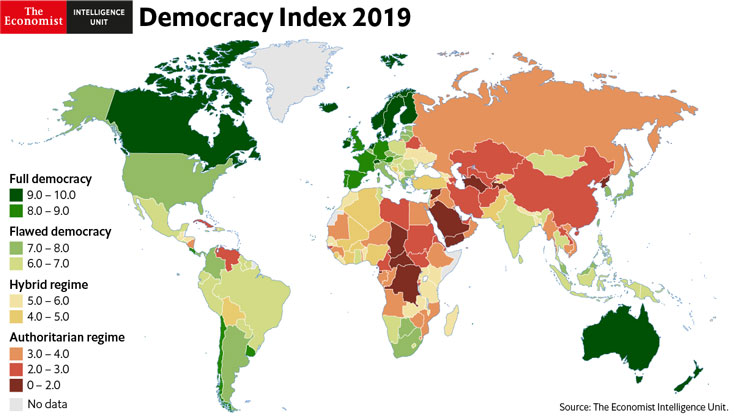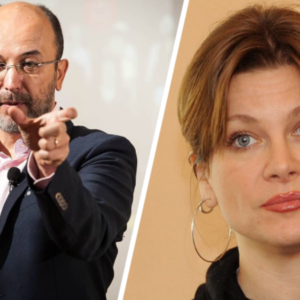The rise of disinformation about politics and public affairs represents an existential threat to democratic governance in many countries, and Croatia is no exception. After all, democracy rests on citizens having access to accurate and reliable information sources in order to make judgments about how they should be governed.
Although I receive email comments, letters and submissions by readers of my blog articles from all over the world on a daily basis, I have not written an article about these before. Several weeks ago, I received an anonymous three-page letter that caught my particular attention, perhaps because it, more than any other, made me ask myself the question as to why I started this blog “Croatia, the War, and the Future” in the first place in October of 2011. The anonymous writer claims to be a leading member of the Australian-Croatian community (I have no way of knowing whether this is true) and questions the need for me to write about the Serb aggression against Croatia and ultimately about the need to decommunise Croatia (for which rivers of Croatian blood were spilled in the 1990’s Homeland War)! The writer claims that such content of my articles (indeed anyone’s) serves as fuel for hatred between Croatian and Serbian community in Australia etc.! Well, for one, I personally have never felt that hatred on Australian soil and am not aware of it. All efforts to try and help Croatia develop a decent functional democracy in Croatia have always to my knowledge concentrated on issues within Croatia, not the diaspora, not in Australia.
In a recent survey UK poll regarding information available to the public, the role of government and the journalists more generally, it has been claimed the public want health information not adversarial journalism at a time of national crisis to do with Covid-19.
Some participants, for example, echoed those politicians asking for a “rally-round-the-flag” approach to reporting, saying that it’s not appropriate to criticise the government at a time of national crisis. But most people called for more – not less – scrutiny of political decision making. While the BBC and ITV were singled out for not being critical enough, many respondents wanted both broadcasters to hold the government to account more robustly.
And so, I return to the above mentioned three-page letter I received a few weeks ago. When it comes to the development of a functional democracy Croatia has been in a national crisis since year 2000, that is, after Franjo Tudjman’s death in late 1999. Former communists and sympathisers of the former Yugoslavia communist regime increasingly took power or came into power and the intent and goal to decommunise Croatia post the Homeland War was pushed further and further away from the national forward plan or goal. And to answer the above letter anonymous writer:
Yes, it is absolutely essential for me, and everybody else that cares, to write about the Serbo-Yugoslav aggression against Croatia in the 1990’s. It is absolutely essential particularly because, although the Homeland War had officially ended in 1998, it continued and continues on moral, cultural and national goals levels! The turn in politics during the decade starting with year 2000, to equate the victim with the aggressor has been a particularly troubling platform that ensured communist heritage in Croatia had a life even in a supposedly developing democracy! And this is particularly evident in a dysfunctional public administration that promotes and aids corruption and nepotism as part of that heritage. It is also evident in the almost aggressive and nationally destructive imposition of ethnic minority rights that saw the Serb aggressor wielding their way into the Croatian government, thus belittling, even damning Croatia’s right to defend its citizens’ lives during the war aggression.
As a reminder, the fall of the Berlin Wall in 1989 and the Soviet Union’s collapse in 1991 cleared the way for the formation or restoration of democratic institutions not only in Eastern Europe, but also in Croatia. This surge of progress towards a fully functional democracy conceived by Franjo Tudjman and detailed in 1990 in his inaugural speech for the new Parliament in Croatia had almost immediately after his death begun to roll back.
The reversal in the case of Croatia is evidently the result of Croatia not having a leader that would stand in Tudjman’s decisive shoes of complete abandonment of the communist regime and its laws. Hence, the euphoria for the free and democratic Croatia that had expanded among Croats worldwide during 1990’s experienced increased pressure of dampening as former communist “bigwigs” (who rejected the idea of a free and democratic Croatia from the very start) took hold of power. As that momentum of the euphoria wore off, Croatia struggled to accommodate the political swings and contentious debates intrinsic to democracy and the meaning and the values of its Homeland War. Rapidly erected so-called democratic institutions, most of whom promoted values of former communist Yugoslavia regime rather than a desired democratic Croatia, have resulted in sustained attacks of the Homeland War values and notched up fights to suppress responsibilities of the 1990’s Serb-rebel crimes against Croatians; creating a false but unnerving picture of ethnic rivalries where there are none if one accepts the realities that minorities are only minorities and should not interfere in national aspirations generally.
Amidst all this Croatia remains an economically fragile country. Its internal politics that have since year 2000 abandoned the focus on national identity as a fully developed democracy, away from former communist Yugoslavia regime, in 2019 Croatia still remains in shambles as a democracy. The 2019 world Democracy Index, compiled by the Economist Intelligence Unit, registered Croatia at the bottom of the Flawed Democracy category. Indeed, in 2020 it is blatantly clear that there is further decline and deterioration of democracy in Croatia. Power is being centralised to an almost dictatorship level where fear of losing ones livelihood due to political opinion expressions or disagreements with the government is widespread; exodus of young and middle-aged people during the past five years has almost surpassed the alarming levels of emigration or fleeing from oppressive communist Yugoslavia during 1950’s and 1960’s; the control of mainstream media in Croatia is foul; the courts are manipulated and protests or dissenting opinion – squelched; denial of reasonable access to polling stations at times of general elections is widespread in selected electorates akin to voter suppression.
Democracy in Croatia has a competitor and that competitor wears the robes of denying the Croatian people the dignity of developing a democracy for which they fought for in the Homeland War and the undergarments are weaved from communist mindset that includes not calling the Serbian aggressor to account for all the Croatian suffering in their own country at the hands of Serb aggressor.
The challenges for Croatia now are more fundamental than political slogans waved around during elections. The challenges are how to stimulate democracy in Croatia and discourage and stamp out the communist mindset laced authoritarianism that has sadly outwitted the democratic trend since year 2000, and how to support democracy where it is under siege because of government’s poor performance, appalling judiciary, distancing from national cohesion for democracy, failure to condemn the former communist totalitarian regime. Responding to these challenges has required and requires a greater willingness to pressure authoritarian leaders who offer short-term economic and security benefits to Croatia but spell long-term trouble. Hence, dear anonymous letter writer, I simply cannot write only about the magnificent physical beauty of Croatia’s tourist attractions. I have a responsibility like all others to write about the flaws of Croatia’s political scenes that cause suffering in everyday life of citizens because of the intolerable flawed democracy and try and act in such a way that may contribute towards obliteration of those flaws. I want full democracy to thrive in Croatia one day. I wanted that in 1989 and I want it now! To achieve that one must show and criticise firmly the things that stand in the way of full democracy and citizens’ enthusiasm and thirst for life and national pride. Ina Vukic




